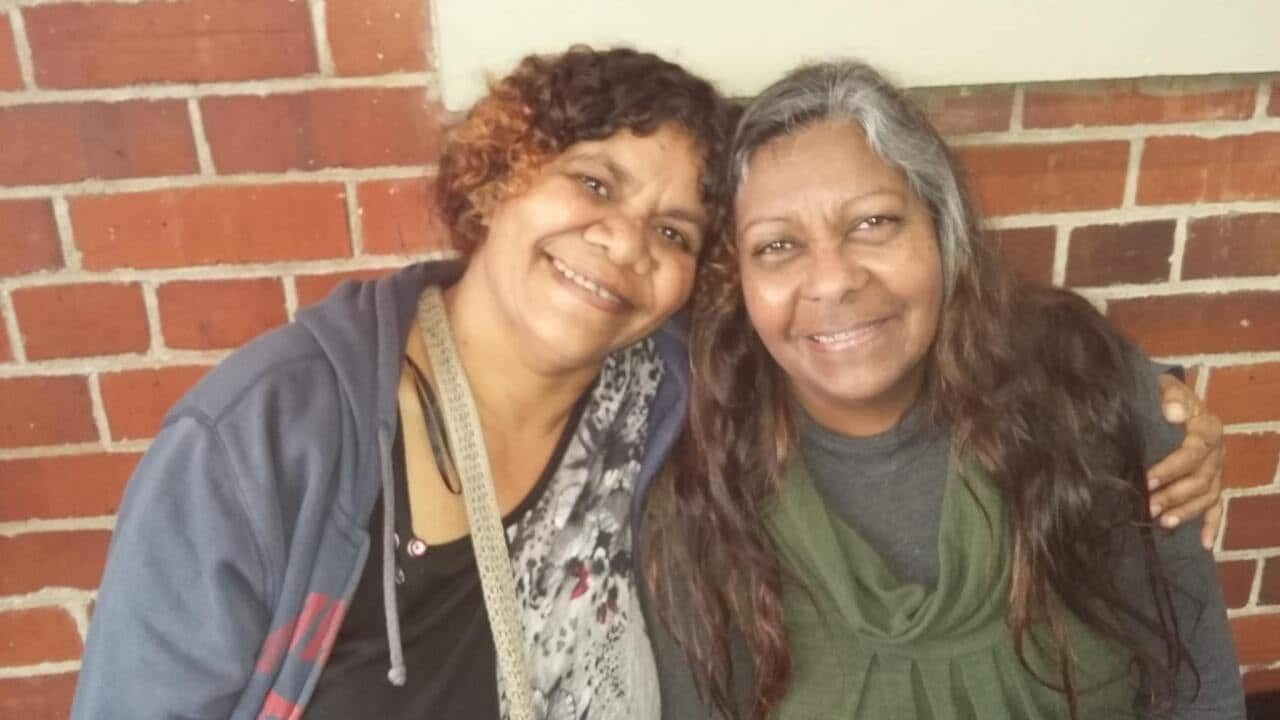As then-Prime Minister Kevin Rudd delivered his much-anticipated apology to the Stolen Generations in Canberra, Elly Chatfield was watching history unfold on a TV in a Katoomba pub.
"There was Indigenous and non-Indigenous people and it was just filled with love," the Gamilaroi woman recalls.
"It was so friendly and happy and we were all there for the one reason and it was all beautiful."
As the moment of truth approached, Elly's phone began to ring. She was about to toss it aside, when she realised who was calling: acclaimed Hollywood film director Baz Luhrmann.
"Somebody said 'why are you answering your phone today?' And I said 'it's Baz Luhrmann!', and they went 'answer your phone!'" Elly laughs.
"He wanted to add his apologies to the day and to the people I was sitting with and my family, and [he said] that those things were wrong... And I thought wow; this is from a man who didn't need to do that. This is from a man who... has all these huge commitments, like world commitments, ringing for me! I was astounded."
The story behind the call began earlier that year when Elly was an extra on the set of Luhrmann's outback epic, Australia. When she became upset during a scene depicting the removal of an Aboriginal child, Luhrmann immediately cleared the set, and took Elly's hands in his. "He sat with me, just him and I... and said tell me your story. And I thought how do I tell this man my story?"
"He sat with me, just him and I... and said tell me your story. And I thought how do I tell this man my story?"

Elly Chatfield (centre) as an extra on the set of 'Australia', alongside Aunty Lillian Crombie and Margaret West. Source: Supplied
For the next half hour, and at regular intervals throughout the rest of the filming process, Elly explained why she'd been so traumatised by the scene.
She herself was taken from her parents' Moree home at only 14 months of age, and placed with non-Indigenous foster parents in Merrylands, New South Wales. For more than three decades, she felt lost.
For more than three decades, she felt lost.

Elly Chatfield was raised by foster parents in western Sydney. Source: Supplied
"The sense of belonging is as important as our heartbeat, it's as important as our essence because it is actually our essence," Elly says.
"Where we come from defines who we are, where we're from, where we're going to end up, our thought patterns - it's all-encompassing."
It was only in her late thirties that Elly, with the help of friends and the state's Link-Up service, slowly tracked down her family members one by one.
MORE ON ELLY'S STORY:

Stolen at birth: How two Indigenous sisters found each other 54 years later
Sadly, her mother died before Elly had a chance to meet her.
She knew her father for little more than a decade before he, too, passed away.
"Every single time I go on one of these reunions, I'm so ecstatically happy... and that's a long way to fall when you come back home," the mother-of-two says.
"When I get back it's then like well how much have I missed out on? And what questions didn't I ask? What do I need to ask next time? How could the government do this to a family?" Following Rudd's national apology in 2008, Elly is often asked why she can't 'just move on'. Her response: "I've just said well look if you can move on, that's fantastic. There are people who can't yet. That apology didn't do enough".
Following Rudd's national apology in 2008, Elly is often asked why she can't 'just move on'. Her response: "I've just said well look if you can move on, that's fantastic. There are people who can't yet. That apology didn't do enough".

After decades of searching, Elly Chatfield met her sister, Lavenia, for the first time in 2015. Source: NITV
Notwithstanding phone calls from famous directors, the apology wasn't the end for Elly, or many other First Nations families. In the decade since the apology, the rates of Indigenous children in care have by around 65 per cent.
"The fact of the matter is, children are still being taken, and people are still being displaced from their lands, and when is it gonna stop?" Elly says.
"It's taken me 56 years to know who I am. Do we want that for another generation of children growing in? We don't, we absolutely don't."
On the tenth anniversary of the apology, it's not Baz Luhrmann who will occupy Elly's thoughts. She will think, instead, of her father.
Her father, whose hazy outline she remembers leaning over her cot to kiss her goodnight as a baby.
Her father, who was away working when she was taken at 14 months of age.
Her father, who wrote at least 21 letters to the Aborigines Welfare Board, begging to see his daughter - all of which were denied.
Her father, whom she knew for little more than 10 years before he passed away.
Her father, who never lived to see the tenth anniversary of the apology, and who never stopped trying to find his little girl.











